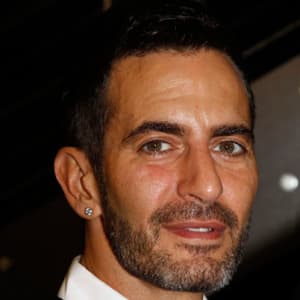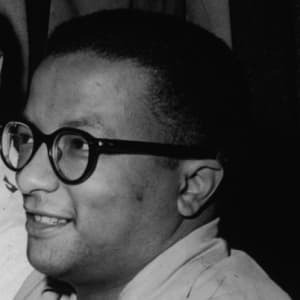
James Chaney
James Chaney was one of three civil rights workers killed in Mississippi in 1964. This tragedy inspired the 1988 film ‘Mississippi Burning.’
Synopsis
Born in 1943 in Mississippi, James Chaney grew up as an African American in the segregated south. He became involved in the fight for civil rights as a teenager. He participated in the Freedom Rides bus protests in 1962 and joined the Congress for Racial Equality in 1963. Chaney worked for CORE in his hometown of Meridian, Mississippi. There he worked on several civil rights initiatives, including setting up "freedom schools." Chaney was killed by members of the Klu Klux Klan in June of 1964.
Early Life
Born on May 30, 1943, in Meridian, Mississippi, James Earl Chaney was working to help his community when he was murdered. He, along with Michael Schwerner and Andrew Goodman, were killed by members of the Klu Klux Klan in June 1964. An African American, Chaney knew firsthand the impact of racial segregation and prejudice had on life in the south.
Raised Catholic, Chaney was devoted to his faith. He served as an altar boy growing up. A gifted athlete, Chaney attended Harris Junior College High School where he captained the track and football team. He worked as a trade union apprentice after high school and became more actively involved in the growing civil rights movement.
Civil Rights Activist
Chaney participated in the Freedom Rides in 1962. Protestors, known as Freedom Riders, traveled on buses in the south to challenge the practice of racial segregation on buses and in bus terminals. This effort was organized by the Congress of Racial Equality. Chaney joined CORE the following year and worked on getting African Americans in his community registered to vote. At the time, local and state governments in the south sought to deny African Americans their right to vote through different rules and tactics.
In 1964, Chaney began working with Michael Schwerner. Schwerner had moved to Meridian, Mississippi, with his wife Rita. Chaney helped to find places for voter education programs to be held, including a church in Longdale, Mississippi. He and Schwerner had spent months meeting with leaders at the Mount Zion Methodist Church before they reached an agreement to host events there. They hoped that these programs would help African Americans in Neshoba County, a poor, rural area.
Untimely Death
In June 1964, Chaney traveled with the Schwerners to Ohio for a volunteer training session. Hundreds of volunteers, many young college students from the north, were part of the Freedom Summer initiative. These volunteers signed on to help register African Americans in Mississippi to register to vote. Chaney and Michael Schwerner left the event early, however, after learning that the Mount Zion church had burned down and its members had been attacked by the Klu Klux Klan, a white supremacist group. Andrew Goodman, a young volunteer, also joined the pair on the trip back to Mississippi.
On June 21, Chaney was arrested by the police reportedly for speeding. He and his two companions were brought to the Neshoba County jail where they were held for several hours. Released around 10 p.m. that night, the three left the station and returned to their car. They drove away, but they never arrived at their destination. Their disappearance made national headlines, largely because Chaney's two companions were young white men. Other African Americans had met similar fates, but this was the first well-publicized incident involving whites. With all the media attention surrounding the case, President Lyndon Johnson called in the Federal Bureau of Investigation to investigate.
While local and state law enforcement largely ignored the case, the FBI sought to solve the mystery surrounding the fate of the three civil rights workers. The car Chaney drove was discovered two days later. It was found in Bogue Chitto swamp after the FBI received a tip regarding its location. There was no sign as to what happened to three young men, but the nation began to fear the worst.
Search for Justice
The search for Chaney, Goodman and Schwerner finally ended in August when their bodies were discovered in an earthen dam on the Old Jolly Farm near Philadelphia, Mississippi. The three men had been shot to death. Local and state authorities refused to investigate the murders of the three CORE members, claiming a lack of evidence. The federal government stepped in and pursued civil rights charges against a group of men, including several law enforcement officers.
The legal battle dragged on for several years as the original charges were thrown out by one court on appeal and then the charges were later allowed to refiled. Of the original 18 men charged in connection with the case, only seven were found guilty and served time in prison. No one, however, had been held accountable for the actual murders.
Interest in the murders of Chaney, Goodman and Schwerner was renewed in the late 1980s with the release of Mississippi Burning (1988), a film based on the incident. A Clarion-Ledger reporter, Jerry Mitchell, was instrumental in reviving the case in the late 1990s. One of the original defendants, Edgar Ray Killen, was charged in connection with the murders. He was a local Klan leader and a Methodist minister at the time of the killings. Killen had been acquitted in the 1967 civil rights trial because one of the jurors refused to convict a preacher. This time around, however, Killen was found guilty of manslaughter in a 2005 trial and sentenced to 60 years in prison. He had been the main instigator of the 1964 killings.
Lasting Legacy
The deaths of Chaney, Goodman and Schwerner helped garner national support for the civil rights movement. To this day, Chaney is remembered for his bravery and personal sacrifice. He was honored posthumously for his civil rights work in 2014 when President Barack Obama gave him the Presidential Medal of Freedom.
Chaney's fight for civil rights is now being carried on by his brother Ben Chaney. Ben established the James Earl Chaney Foundation in 1998 to support different initiatives, including the Chaney Goodman Schwerner Justice Coalition.



